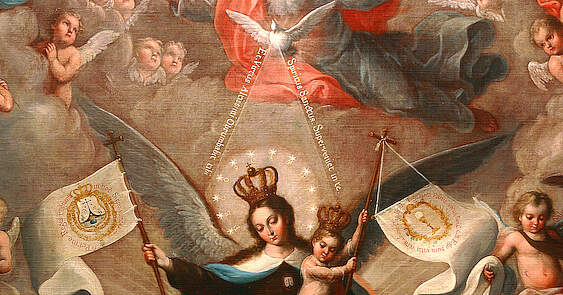
“The Word became flesh” does not signify that the nature of God was changed into flesh, but that the Word took the flesh into the unity of His Person: and therein undoubtedly the whole man was received, with which within the Virgin's womb fecundated by the Holy Spirit, whose virginity was destined never to be lost , the Son of God was so inseparably united that He who was born without time of the Father's essence was Himself in time born of the Virgin's womb.
For we could not otherwise be released from the chains of eternal death but by Him becoming humble in our nature, Who remained Almighty in His own.
And so our Lord Jesus Christ, being at birth true man though He never ceased to be true God, made in Himself the beginning of a new creation, and in the form of His birth started the spiritual life of mankind afresh, that to abolish the taint of our birth according to the flesh there might be a possibility of regeneration without our sinful seed for those of whom it is said, Who were born not of blood, nor of the will of the flesh, nor of the will of man, but of God (John 1:13).
What mind can grasp this mystery, what tongue can express this gracious act?
Sinfulness returns to guiltlessness and the old nature becomes new; strangers receive adoption and outsiders enter upon an inheritance.
The ungodly begin to be righteous, the miserly benevolent, the incontinent chaste, the earthly heavenly.
And whence comes this change, save by the right hand of the Most High?
St Leo the Great - Sermon 27, On the Feast of the Nativity, VII